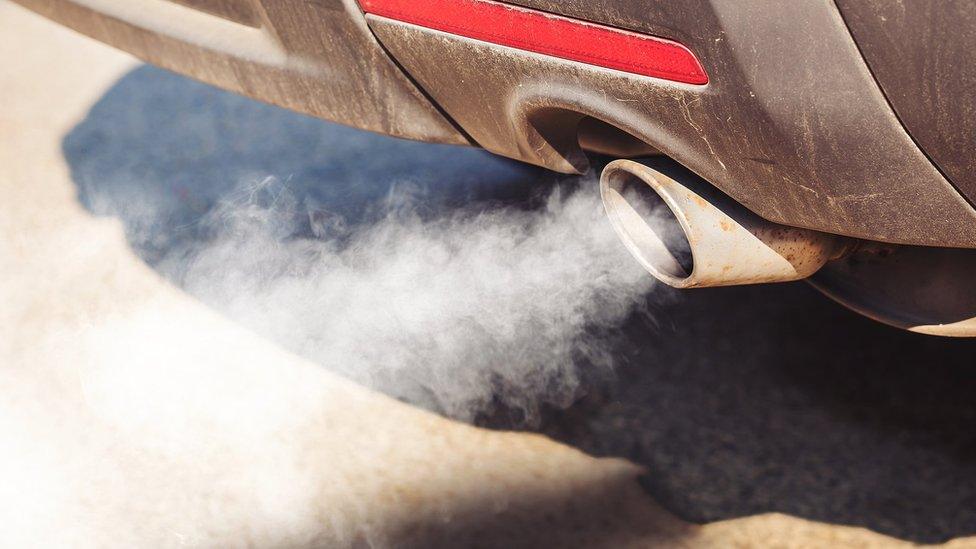How much effect does breathing dirty air have on our health?
- Published
- comments

Health secretary Matt Hancock has ordered a review into the impact on our health of breathing dirty air.
Calling air pollution a "slow and deadly poison", the government minister also wants better predictions to be made about the future number of people that could become ill due to poor air quality by 2035, the Guardian reported.
"Our health is shaped by the environment we live in and dirty air is the largest environmental risk to public health in the UK," Mr Hancock said. "We cannot underestimate the very real impact that dirty air - this slow and deadly poison - is having on our lives, our health and our NHS."
In January, the government made promises about how it was going to tackle the issue of air pollution.
Called the Clean Air Strategy, the programme included new rules for farms, open fires and wood-burning stoves, in the hope of halving the number of people breathing in harmful particles by 2025.
"Our recent clean air strategy sets out some bold steps on cleaning up our air, but it is also vital that we have accurate long-term data on the potential health impacts of pollution," said Mr Hancock.
The idea is that this information can then be used to take steps, wherever possible, to prevent people from becoming ill in the first place.
It was recently announced that the world's first hydrogen double decker buses will be arriving in London next year in a bid to bring down air pollution levels in the capital
The review will also form part of the NHS's plan to go more green.
In 2017, 3.5% of all of the road travel in England - that's around 9.5 billion miles travelled - was related to patients, visitors, staff and suppliers to the NHS.
The idea is to try to reduce the number of people carrying out travel for NHS reasons in order to contribute to reducing air pollution levels.
What do you think about the problem with air pollution? Do you think enough is being done to deal with the issue? Let us know in the comments below.
- Published23 November 2018
- Published15 March 2019
- Published19 October 2018
